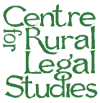Water & Sanitation

Water and Sanitation as Human Rights
Access to potable drinking water and proper sanitation is essential for human life. The South African government recognizes this need, and lists access to water as a basic human right in its constitution. It has established programs to provide water and sanitation for those who cannot afford it, the Free Basic Water policy and the Free Basic Sanitation policy. The Free Basic Water policy provides approximately 6000 litres of water to households, while the Free Basic Sanitation policy works to ensure that everyone has access to safe sanitation facilities and uses sanitary practices.
Access to water and sanitation are also internationally recognized as human rights. Recent agreements, such as the 1979 Convention on the Elimination of All Forms of Discrimination Against Women and the 1999 Protocol on Water and Health, outlined the importance of water and sanitation as human rights. The United Nations also workers toward universal access to water and sanitation through its 2030 Sustainable Development Goals.
In the Central Karoo
Farm workers, their families, and other rural dwellers in the Central Karoo District are unable to equally enjoy access to clean water and proper sanitation. A survey conducted by the Centre for Rural Legal Studies in 2016 found that approximately 30% of rural dwellers in the district do not have access to a toilet facility. These individuals must use the bush or the open veld as sanitation facilities, which exposes them to a variety of health and safety risks.
These rural dwellers also have inadequate access to clean drinking water. They source water from local dams, which are filled with algae and insects. The residents also reported that water supplied by the municipality has a horrible smell and taste. Unclean and polluted drinking water puts rural dwellers at risk of contracting waterborne diseases.
What We Do
The Centre for Rural Legal Studies conducts learning sessions and studies in the Central Karoo to increase farm worker and rural dwellers’ access to clean water and proper sanitation. In our learning sessions, CRLS informs farm workers and rural dwellers on their rights to access water and sanitation, and prompts them to agitate for sustainable change. The learning sessions also enable farmworker and rural communities to engage with other stakeholders, such as the farmer owners and local government, to find a solution for all stakeholders to their problems involving water and sanitation. CRLS also runs studies to assess access to water and sanitation and gather information on how to further meaningful change.
Why It Matters
Access to clean water and proper sanitation enables farm workers, their families, and other rural dwellers to live with dignity. Without this access, they are constantly at risk of contracting severe diseases and forced to live below a decent standard of living. Our efforts aim to change this situation and empower farmworkers and rural dwellers to live with dignity and improve their wellbeing by creating secure and sustainable change within their communities.

